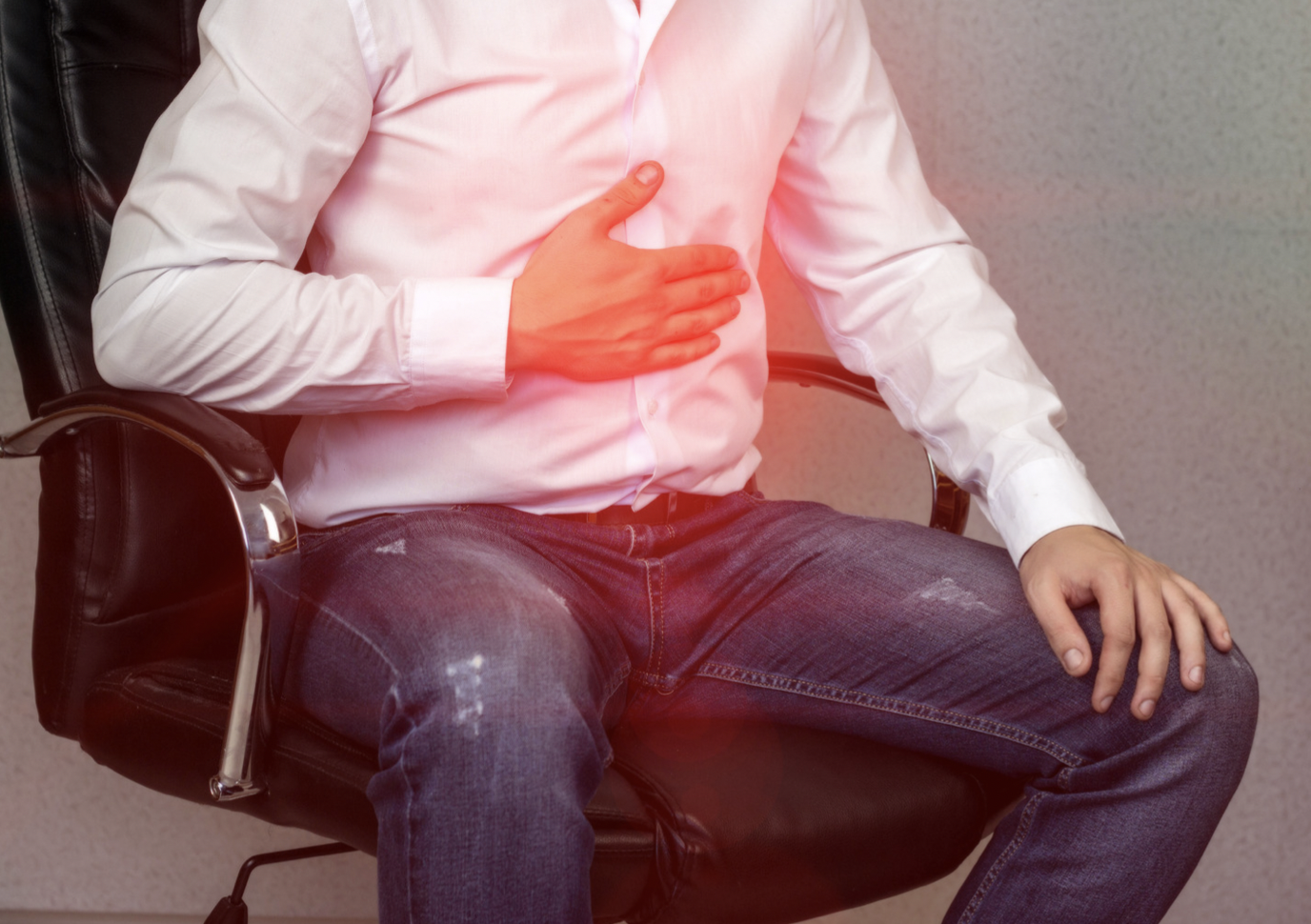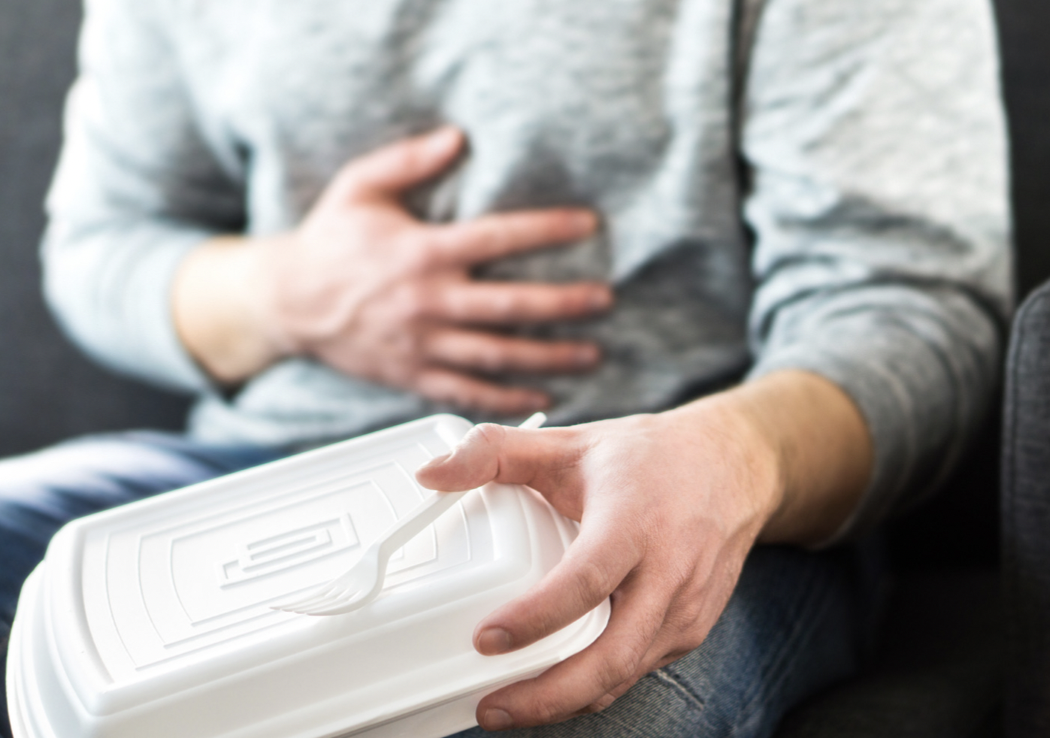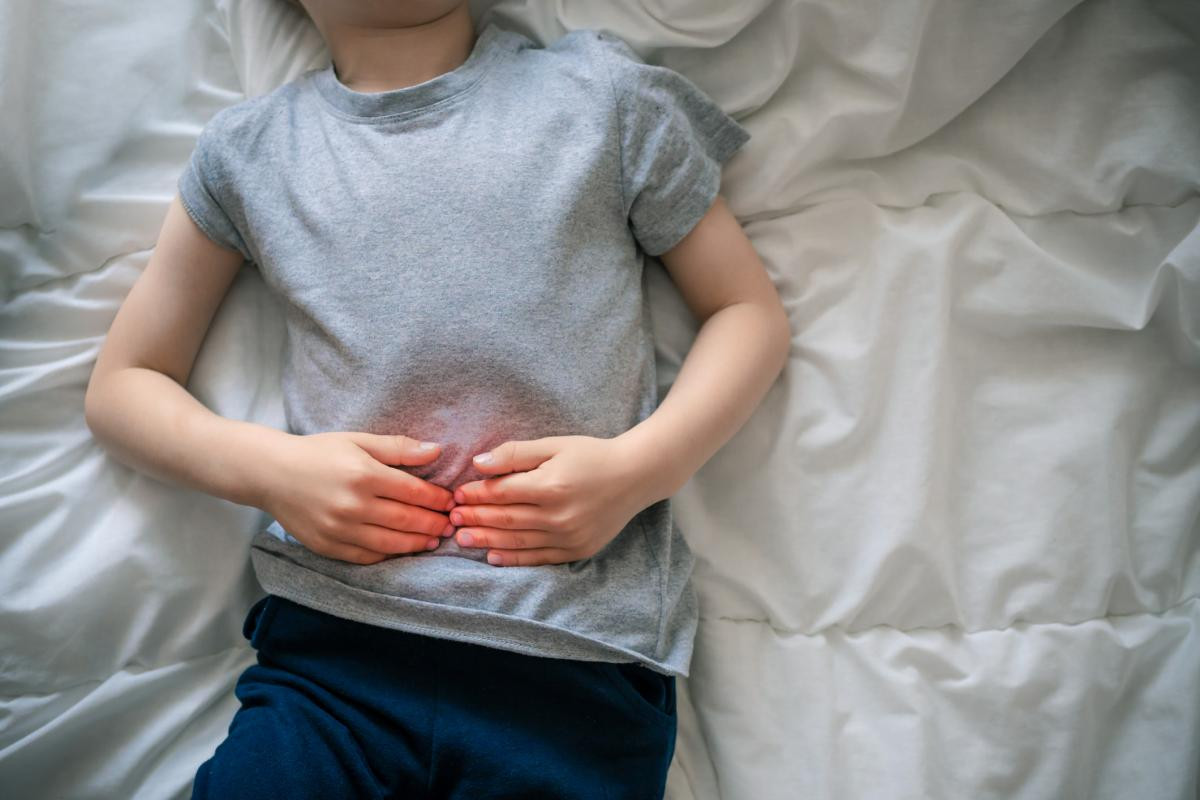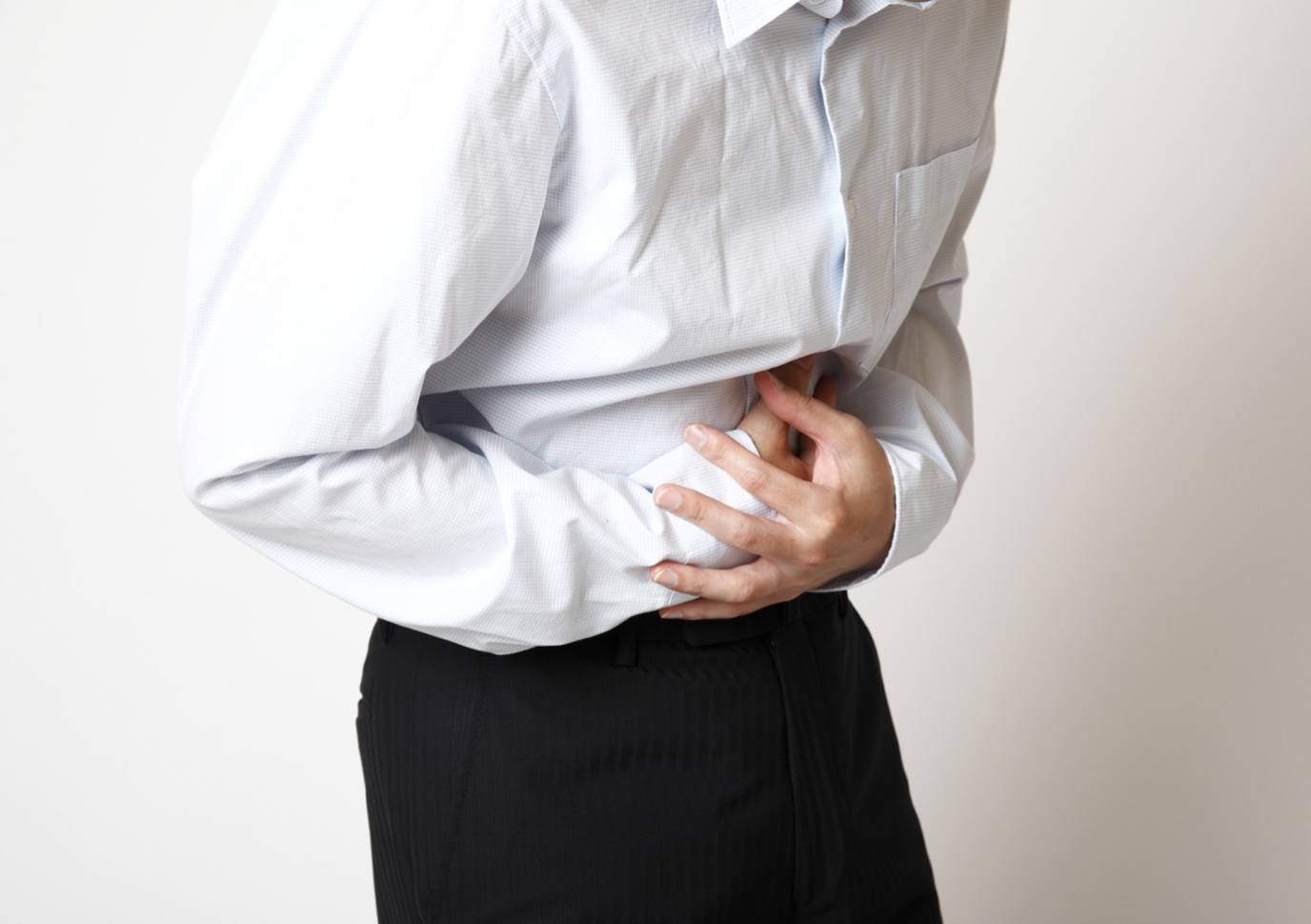Definisi
Gastritis adalah proses peradangan pada lapisan dinding lambung atau mukosa. Peradangan yang terjadi juga dapat menyerang bagian lebih dalam dari dinding lambung yang disebut dengan submukosa. Lapisan dinding lambung dilapisi oleh lendir (mukus) tebal yang berfungsi berfungsi sebagai mekanisme pertahanan apabila terdapat bakteri atau bahan iritan lain. Dinding lambung rentan mengalami radang akibat kerusakan dari mukus yang dapat disebabkan oleh asam lambung atau zat lainnya.
Peradangan dapat terjadi baik secara akut maupun kronis. Gastritis akut terjadi ketika lapisan dinding lambung mengalami peradangan secara tiba-tiba. Hal ini dapat menyebabkan nyeri ulu hati yang hebat, tetapi bersifat sementara.
Gastritis kronis terjadi ketika lapisan dinding lambung mengalami peradangan secara perlahan dalam kurun waktu lebih lama dan gejala yang muncul lebih sering. Apabila kondisi ini terus-menerus dibiarkan, dapat terjadi perubahan struktur lapisan lambung dan meningkatkan risiko kanker lambung.
Penyebab
Peradangan pada lambung dapat terjadi bila mukus pelindung yang berada di lapisan dinding lambung mengalami kerusakan. Rusaknya mukus umumnya disebabkan oleh infeksi bakteri. dapat disebabkan oleh beberapa hal, antara lain:
Infeksi bakteri: Bakteri umum penyebab gastritis ialah Helicobacter pylori. Bakteri ini sering menginfeksi lapisan dinding lambung dan menyebabkan peradangan. Infeksi terutama terjadi di daerah dengan kebersihan lingkungan yang kurang baik. Selain itu, dapat pula dipengaruhi oleh pola hidup dan pola makan.
Konsumsi alkohol berlebihan: Lapisan dinding lambung dapat terkikis akibat konsumsi minuman beralkohol. Hal ini dapat menyebabkan iritasi dan peradangan dan lebih sering menyebabkan kejadian gastritis akut.
Konsumsi obat pereda nyeri berlebihan: Beberapa obat pereda nyeri seperti aspirin, ibuprofen, atau naproxen dapat menyebabkan iritasi pada lambung jika dikonsumsi terlalu sering. Obat pereda nyeri yang dikonsumsi berlebihan dapat menyebabkan proses regenerasi lapisan lambung terhambat, sehingga lebih mudah mengalami cedera dan iritasi. Bila Anda disarankan oleh dokter untuk mengonsumsi obat pereda nyeri dalam jangka panjang, Anda dapat kontrol secara rutin dengan dokter Anda.
Usia lanjut: Lapisan dinding lambung akan mengalami penipisan seiring dengan bertambahnya usia. Oleh karena itu, gastritis lebih sering terjadi pada lansia dibandingkan usia muda.
Faktor Risiko
Beberapa kondisi dan aktivitas selain penyebab utama di atas, dapat meningkatkan risiko terjadinya gastritis, di antaranya:
- Pola makan yang tidak baik, misalnya waktu makan yang terlambat, sering konsumsi makanan pedas, porsi makan yang besar.
- Kebiasaan merokok.
- Infeksi virus.
- Penyakit crohn.
- Autoimun.
- Refluks empedu.
- Gagal ginjal.
- Penggunaan kokain.
- Stress.
Gejala
Kondisi ini dapat terjadi tanpa gejala hingga gejala yang berat, seperti pada gastritis akut. Gejala yang dirasakan tiap orang dapat berbeda-beda, di antaranya:
- Terasa nyeri atau panas dan perih di bagian ulu hati.
- Perut kembung.
- Mual.
- Muntah.
- Cegukan.
- Nafsu makan menurun atau hilang.
- Cepat merasa kenyang saat makan.
Jika terjadi luka atau perdarahan pada lambung akibat pengikisan lapisan lambung yang terjadi terus menerus atau lebih berat, dapat terjadi buang air besar dengan tinja berwarna hitam atau muntah darah. Beberapa penyakit seperti penyakit Chron, batu empedu, atau keracunan makanan dapat menunjukkan gejala serupa dengan gastritis. Oleh karena itu, untuk menegakkan diagnosis gastritis diperlukan pemeriksaan fisik lanjutan dan pemeriksaan penunjang.
Diagnosis
Gastritis tidak dapat ditegakkan hanya berdasarkan riwayat dan gejala saja. Namun, diperlukan pemeriksaan lanjutan dan ditemukannya kerusakan secara organik dari lapisan dinding lambung. Apabila tidak ditemukan kerusakan organik, maka kondisi ini disebut dengan dispepsia.
Pasien yang diduga mengalami gastritis akan menjalani pemeriksaan riwayat kesehatan dan pemeriksaan fisik oleh dokter. Dokter akan menggali terkait gejala yang muncul, sejak kapan keluhan dirasakan, serta kondisi pasien secara umum. Selain itu, pasien juga akan disarankan untuk melakukan pemeriksaan lanjutan, di antaranya:
- Pemeriksaan infeksi Helicobacter pylori: Beberapa tes dapat dilakukan untuk mengecek adanya infeksi bakteri H. pylori, seperti tes darah, tes sampel tinja, serta urea breath test. Tes darah juga dapat mendeteksi adanya anemia pada pasien. Selain itu, tes sampel tinja juga dapat mendeteksi adanya keberadaan darah yang tersembunyi pada tinja.
- Gastroskopi: Pemeriksaan gastroskopi dilakukan untuk melihat tanda peradangan di dalam lambung. Pemeriksaan ini dilakukan dengan cara memasukkan selang khusus yang dipasangi kamera, kemudian masukkan ke dalam lambung melalui mulut. Selain melakukan pemeriksaan gastroskopi, biasanya beberapa jaringan akan diambil untuk menjadi sampel yang selanjutnya diteliti di laboratorium.
- Foto Rontgen: Pemeriksaan ini ditujukan untuk melihat kondisi saluran cerna bagian atas. Pasien akan diminta menelan cairan barium terlebih dahulu sebelum foto rontgen.
Tatalaksana
Pengobatan gastritis bergantung kepada penyebab dan kondisi pasien. Dokter dapat memberikan obat-obatan untuk mengurangi gejala yang dialami oleh pasien. Jenis obat-obatan yang diberikan berupa antasida, penghambat histamin 2 (H2-blocker), atau penghambat pompa proton (PPI). Apabila terdapat diare, dokter dapat memberikan obat antidiare seperti bismut subsalisilat. Apabila penyebab gastritis ialah infeksi bakteri, terutama Helicobacter pylori, maka diperlukan pemberian antibiotik.
Selain obat-obatan, untuk membantu meredakan gejala dan penyembuhan gastritis, pasien perlu memodifikasi gaya hidup. Membuat pola dan jadwal makan yang teratur akan sangat membantu. Selain itu, makan dengan porsi sedikit-sedikit, tetapi sering misalnya 5 - 6 kali sehari. Selain itu, hindari makanan berminyak, asam, atau pedas.
Sebisa mungkin, hindari kebiasaan minum alkohol dan merokok. Kelola stres dengan baik juga dapat meredakan gejala yang dialami. Apabila kambuhnya gejala gastritis diakibatkan oleh konsumsi obat pereda nyeri, segera konsultasikan dengan dokter agar dapat memodifikasi obat yang dikonsumsi.
Komplikasi
Apabila tidak mendapat penanganan, gastritis dapat berkembang menjadi penyakit yang lebih serius. Hal ini terutama berkaitan dengan luka yang terjadi secara terus-menerus sehingga merusak lapisan dinding lambung. Beberapa komplikasi gastritis di antaranya:
- Perdarahan saluran cerna bagian atas.
- Ulkus peptikum.
- Perforasi lambung.
- Anemia.
- Meningkatnya risiko kanker lambung.
Pencegahan
Untuk mencegah terjadinya gastritis, pasien perlu menghindari pemicu terjadinya keluhan. Hal ini dapat dilakukan dengan makan tepat waktu, makan sering dengan porsi kecil, dan menghindari makanan yang meningkatkan asam lambung atau perut kembung seperti kopi, teh, makanan pedas, dan kol.
Beberapa makanan dan minuman berikut ini dapat membantu Anda mencegah terjadinya gastritis, di antaranya:
- Makanan tinggi serat, seperti buah, sayur, dan kacang-kacangan.
- Makanan rendah lemak, seperti ikan, daging merah, dan sayur.
- Makanan dengan kadar asam yang rendah, seperti sayur dan kacang-kacangan.
- Minuman bebas soda
- Minuman bebas kafein
Probiotik juga dapat Anda konsumsi untuk melindungi lambung dari bakteri H. pylori. Beberapa jenis makanan tersebut misalnya yogurt, kimchi, atau kombucha.
Kapan Harus ke Dokter?
Umumnya, apabila Anda saat ini menduga mengalami gastritis, untuk menegakkan diagnosis tersebut, maka Anda perlu memeriksakan diri ke dokter. Dokter akan melakukan serangkaian pemeriksaan dan apabila diagnosisnya telah ditegakkan, Anda perlu mengonsumsi obat secara rutin.
Selain itu, apabila telah dilakukan pengobatan selama 5 hari tetapi belum ada perbaikan yang dirasakan, Anda perlu berkonsultasi lanjutan dengan dokter yang memeriksa. Adanya perdarahan saluran cerna, seperti terjadi muntah darah, buang air besar disertai darah, atau tanda-tanda anemia, merupakan tanda bahaya yang perlu Anda perhatikan. Segera periksakan diri Anda segera ke dokter terdekat jika gejala tersebut muncul.
- dr Ayu Munawaroh, MKK
-
Rugge M, Sugono K, Sacchi D, et al. Gastritis: An Update in 2020. Curr Treat Options Gastro (2020) 18:488–503.
-
Wint C, Murrell D. Gastritis (2020). Available from: https://www.healthline.com/health/gastritis.
-
Hatanaka M, Wells D. Gastritis Diet: What to Eat and What to Avoid (2020). Available from: https://www.healthline.com/health/gastritis-diet.
-
Pengurus Besar Ikatan Dokter Indonesia. Panduan Praktik Klinis Bagi Dokter di Fasilitas Pelayanan Kesehatan Primer. Edisi 1. 2017.
-
Mayo Clinic. Gastritis. Available from: https://www.mayoclinic.org/diseases-conditions/gastritis/diagnosis-treatment/drc-20355813.












